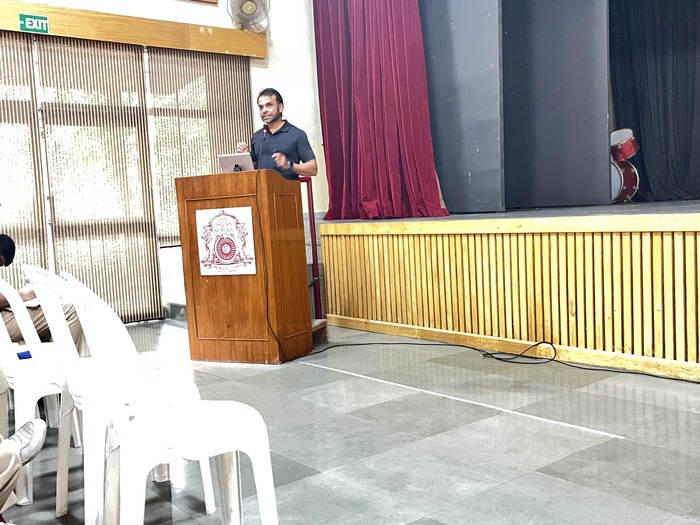Workshop for class 9 on netiquette and cyber safety
October is observed as Cyber Security Awareness Month. On 12 October 2022, a workshop was organised by our School on Netiquette and Online Safety for the students of class 9. The workshop was conducted by Mr Abhishek Ram,an IT security researcher with decades of experience in diverse industries. He has conducted many workshops for school children and teachers on cyber security and hygiene.
The internet plays a major role in our lives, allowing us to communicate and share information with others. With our lives so dependent on the internet, it is important for us to understand how our online behaviour can impact us and others.
Mr Abhishek Ram presented a PowerPoint presentation to explain how netiquette refers to the ideal manners and behaviour expected of internet users. It focusses on the acceptable use of online resources in a social environment in order to ensure online safety and security.
The internet world is not as anonymous as we think it is! Anybody can be tracked with the help of technology. Therefore, one should act in the same way online as one would in real life. Bullying people online or cyber bullying is punishable by law and thus one must display goodnetiquette.
Mr Ram gave the students several tips to stay safe on social media. He suggested students set their profiles to 'private' and verify their connections to check if they have multiple contacts. He further informed us to think carefully before messaging people and not share personal information online as others may misuse it. Students or social media users must avoid high risk sharing or to stay clear of suspicious messages. Avoiding excessive proximity and sharing locations go a long way in keeping one safe in the cyber world.
[gallery link="file" order="DESC"]
The speaker's slides made it easy for the students to understand the various ways in which social media accounts can be hacked. Losing login credentials and control of the registered email address can lead to ones account getting hacked. To prevent this, one should never save one's passcode in the browser and always have multi- factor authentication. Spyware on devices, clicking malicious apps or links and social engineering which are the most common and successful ways of hacking, can fool people into revealing their personal information.
The workshop finally ended with a question- answer session where students asked several questions of the speaker. Some questions included, how to deal with a scam message, whom to report to if one's account is hacked, what does a 'phishing' email look like and many more, regarding ways of protecting the data on ones computer. Mr Ram patiently answered all the questions before ending the workshop.
Kamreen Zehra,IX-C.
For More Pictures...click here













